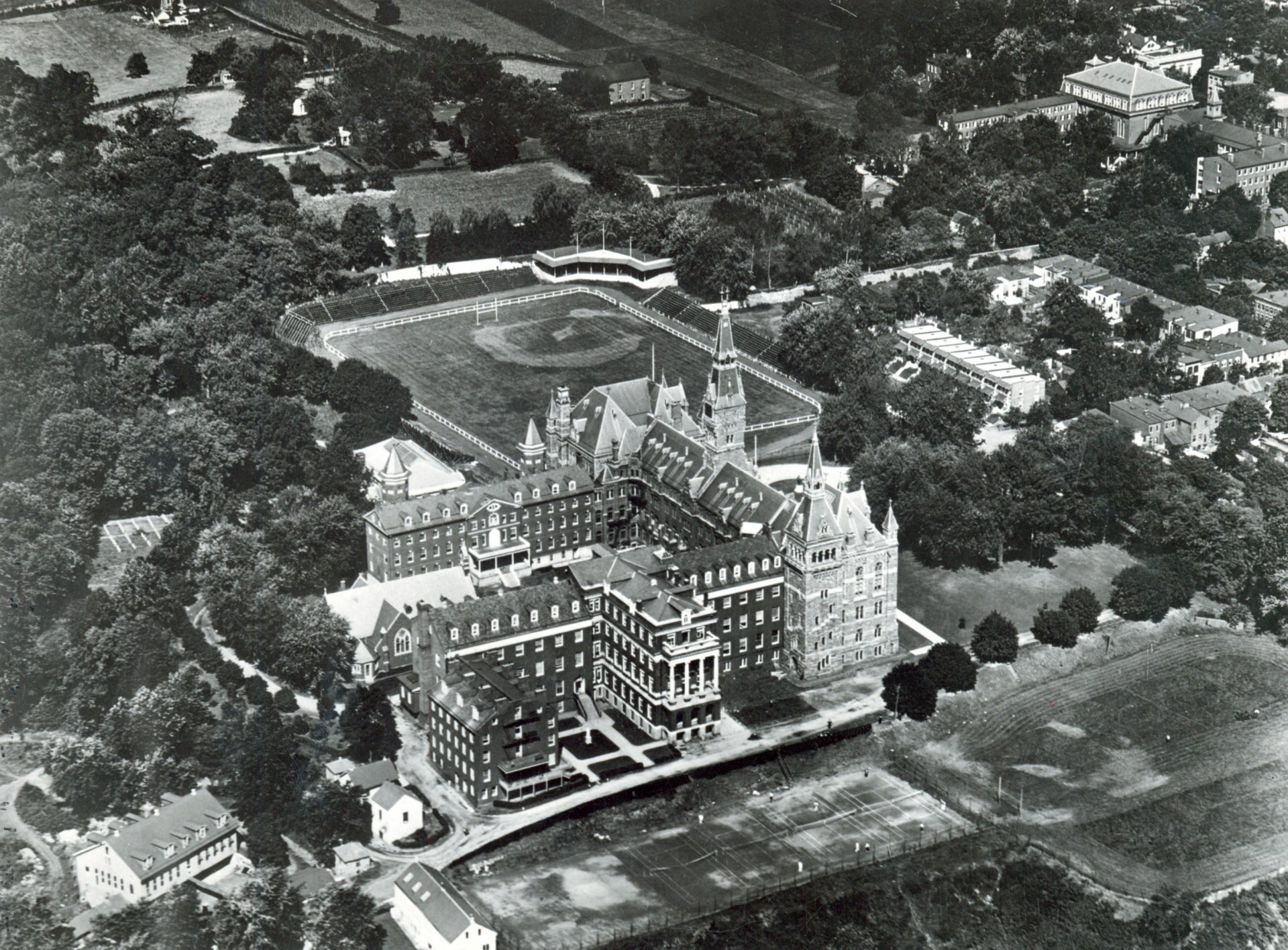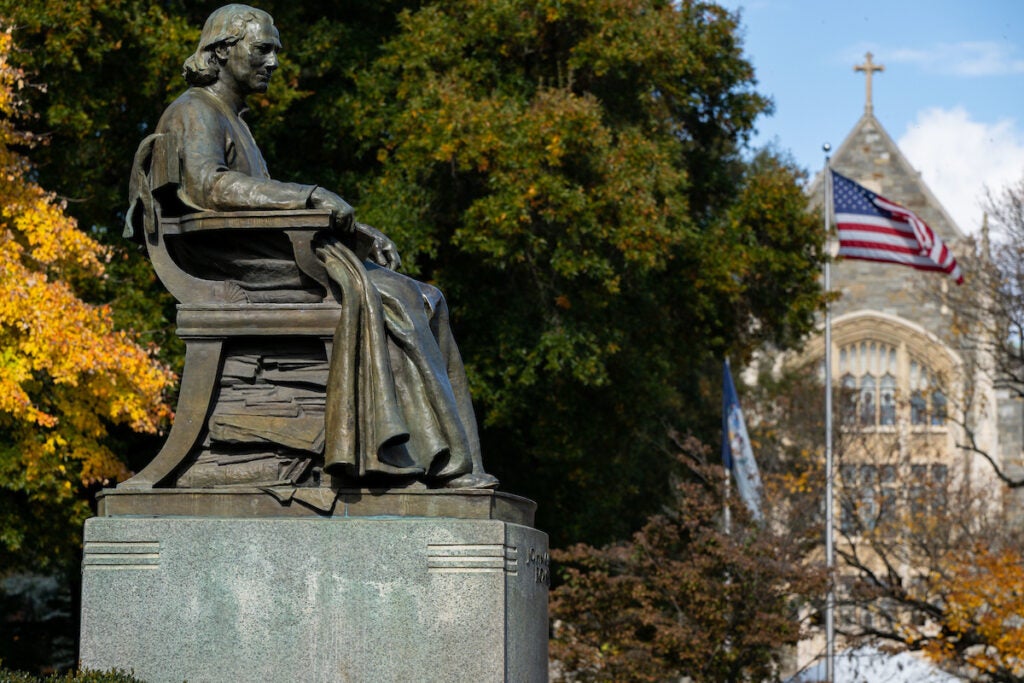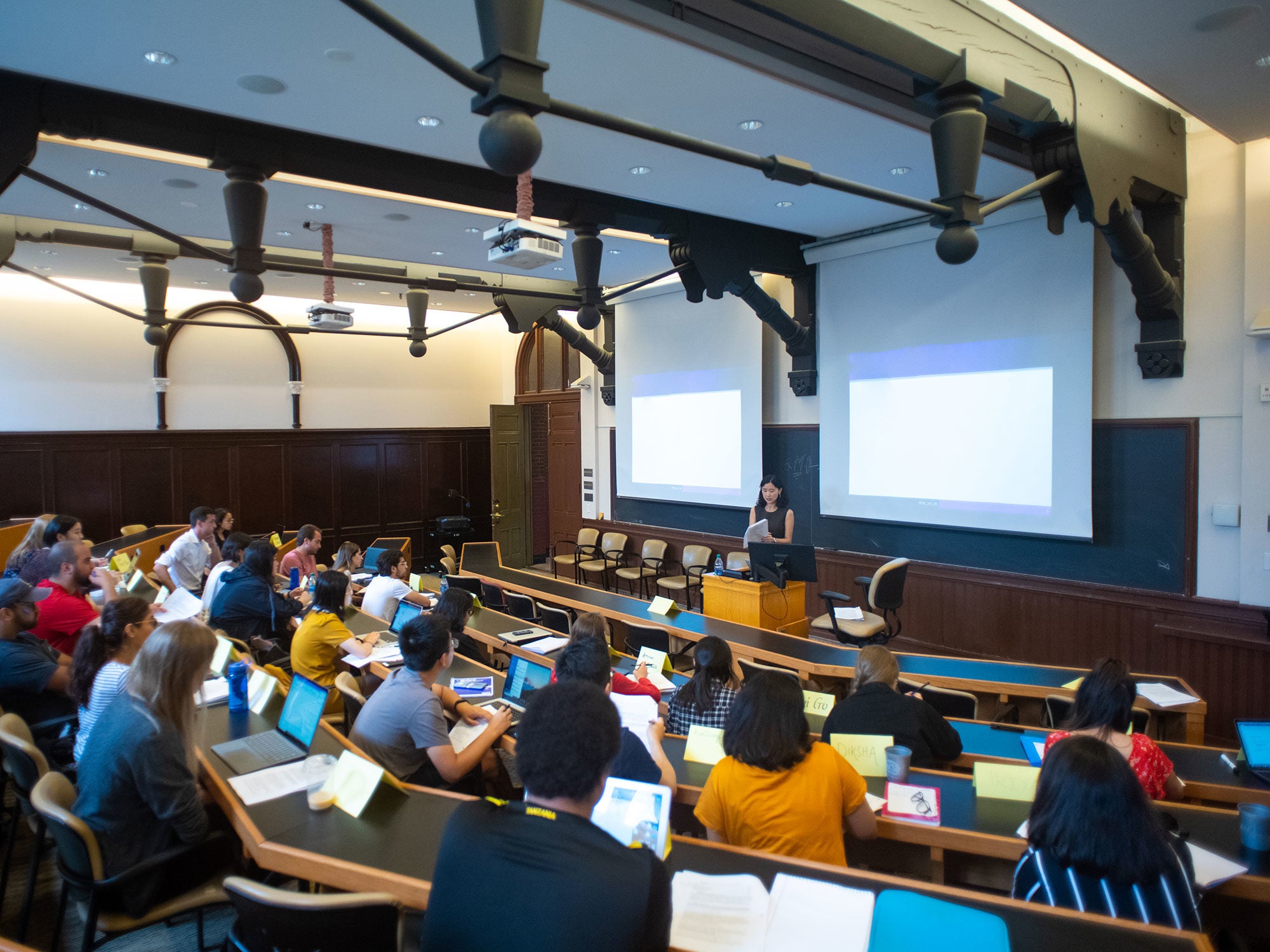History
The Department of Psychology, established in 1967, is an intellectually diverse community of scholars engaged in research addressing psychology at the levels of mind, brain, and society. We strive for excellence in our scholarship and teaching, and we seek to cultivate in our students a dedication to the highest standards in their endeavors. We are committed to collaboration within and across disciplinary boundaries, and to sustaining professional links with relevant local, national, and global organizations.

Aerial view of Georgetown University
In her undergraduate Honors thesis, Laura Sandberg (C’13) examined the institutional history of the department. She was mentored by Professor James Lamiell and in the Department’s 2014 Annual Newsletter, he reflected on this history:
“It was not until the 1960s that our University (along with many other Catholic colleges and universities nationwide) addressed directly and decisively what former G.U. History professor Dorothy Brown called the “double-identity question,” i.e., the question of how to expand the curriculum in ways consonant with the times while maintaining fidelity to Catholic – and in our case Jesuit — educational ideals. It was in this intellectual climate that the Georgetown Psychology Department would emerge.
In her archival research, Ms. Sandberg discovered an early sign of interest in such a department in the records of the December, 1963 meeting of the Executive Faculty of Georgetown College. At that meeting, the Reverend Juan B. Cortes, S.J., formally requested recognition of Psychology as a minor field of study in the College of Arts and Sciences, citing growing student interest in the subject as well as the fact that three Psychology courses were already being offered with the University – two in the Nursing School and one in the Business School. Fr. Cortes’ proposal was accepted.
Then in the spring of 1964, the Executive Faculty received a proposal for the creation of a Psychology Department and the establishment of a major in the subject. The following academic year, 1964-65, a student-led movement in favor of this development was mounted, featuring the argument, as quoted by Ms. Sandberg in her Honors thesis, that it had “become the duty of any progressive university to institute a comprehensive program of psychology in its curricula.” In that same document, it was noted that six upperclassmen were, by special permission, already studying toward a degree in Psychology at that time, even though a Psychology Department as such did not yet exist. . . .

Photo by: Phil Humnicky/Georgetown Univ.
At long last, and after the completion of much administrative groundwork, the Georgetown University Department of Psychology officially opened its doors in the fall semester of the 1967-68 academic year. The Department was housed in White-Gravenor Hall, and though plans were drawn up in the 1970s in consideration of the possibility of moving Psychology into the Reiss Science Building, those plans were abandoned, and the Department remained in White-Gravenor, where it continues to occupy portions of the 3rd and 4th floors.
With the formal establishment of the Psychology Department, enrollments in Psychology courses increased rapidly. Records indicate that while some 40 students had been enrolled in psychology courses in the 1962-63 academic year, there were some 1,500 enrolled during the 1969-70 year — just the third year of the Department’s existence!
Today, the Psychology major leads exclusively to the A.B. degree, and it has become one of the most popular courses of study in the College, hosting approximately 200 majors and 60 minors in the College. Psychology course enrollments typically number about 1,000 students per semester, including many students from outside the College, primarily from the School of Nursing and Health Studies and the Business School. The annual student-to-faculty ratio in Psychology is consistently among the highest if not the highest in the College.
It was not until 1981 that doctoral studies in Psychology could be pursued at Georgetown. At that time, almost all coursework was undertaken on a tutorial basis. In that system, students engaged with faculty on a one-on-basis, through a course of studies and research projects leading to the Ph.D. In time, the program was transformed into one based on more conventional group-wise classroom instruction and leading, through coursework and research projects, to a Ph.D. in Psychology. The revised program, which was launched in 2003, hosts two concentrations, Human Development & Public Policy and Lifespan Cognitive Neuroscience, and has rapidly gained national recognition.

View of Healy Hall classroom
Our academic home here at Georgetown is today a vibrant place. From the past just traced has emerged a Department that is a-bustle with a faculty of highly accomplished and energetic educators and researchers, and with eager and talented students –undergraduate and graduate, alike. It is a Department headed confidently into a future both challenging and promising. My own fondest hope for this Department is that, in the hands of all succeeding generations of its faculty and students, Psychology at Georgetown will be a discipline ever mindful of the challenges of cura personalis.”